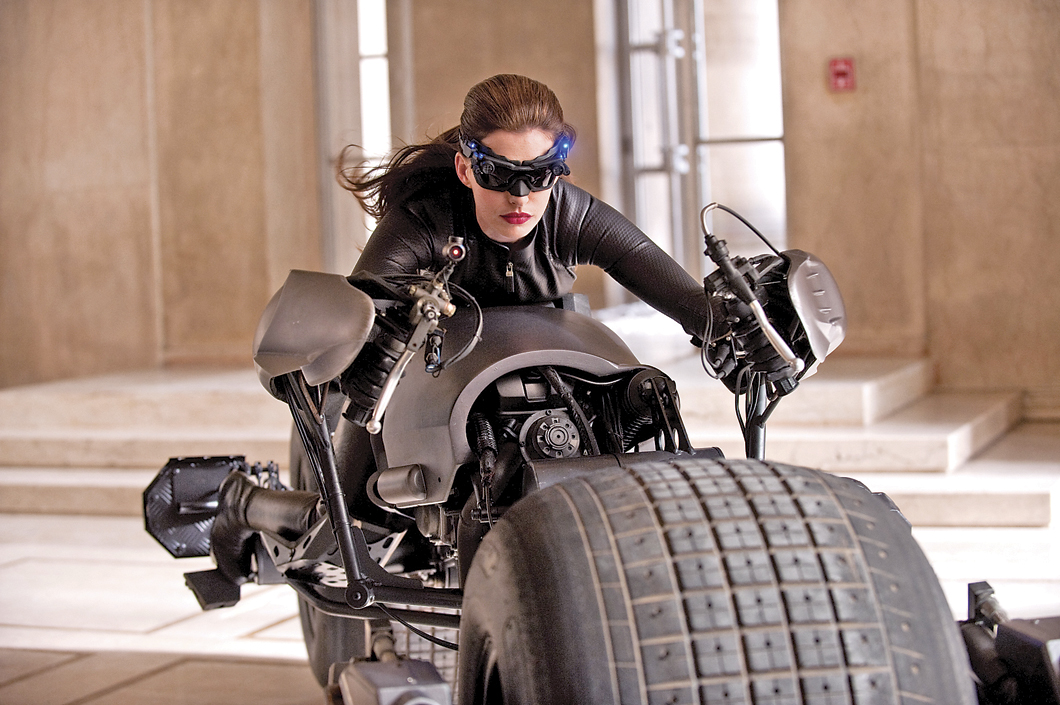By Christy Lemire, The Associated Press
Christopher Nolan concludes his Batman trilogy in typically spectacular, ambitious fashion with "The Dark Knight Rises," but the feeling of frustration and disappointment is unshakable.
Here, as director and co-writer, Nolan is unrelenting in hammering home the dread, the sorrow, the sense of detachment and futility of a city on the brink of collapse with no savior in sight. Gotham is under siege in ways that tonally and visually recall 9/11; what is obviously the island of Manhattan gets cut off from the outside world at one point. Identity theft, economic collapse and an uprising of the disgruntled, disenfranchised have-nots against the smug, comfy haves also come into play.
There's so much going on here, though, with so many new characters who are all meant to function in significant ways that "The Dark Knight Rises" feels overloaded and sadly lacking the spark that gave 2008's "The Dark Knight" such vibrancy.
"The Dark Knight Rises" is plot-heavy, obsessed with process, laden with expository dialogue and flashbacks that bog down the momentum and - dare I say it? - just flat-out boring at times.
"The Dark Knight Rises" feels weighty and substantive - and, thankfully, isn't in 3-D - but it takes on an even grittier look than its predecessors as Gotham City devolves into desperation and ruin.
But Nolan's approach is so coldly cerebral that it's a detriment to the film's emotional core. It's all doom and gloom and no heart. There is no reason to care about these characters.
It's been four years since "The Dark Knight" came out, but eight years have passed in terms of story. Christian Bale's Bruce Wayne suffers in self-imposed exile, sulking about Wayne Manor, mourning the loss of his darling Rachel and carrying the burden of blame for the death of District Attorney Harvey Dent. His goal of a peaceful Gotham has been achieved, but he's left as a man without a purpose. Michael Caine, as the ever-loyal valet Alfred, brings dignity and eloquence to the film as he begs Bruce to carve out his own form of happiness. Fellow veterans Gary Oldman as Commissioner Gordon and Morgan Freeman as gadget guru Lucius Fox are their usual dignified selves, but they don't register the way they should because the film is so overstuffed.
Several new characters manage to draw Bruce out of his funk in various ways. Anne Hathaway brings some much-needed zest to the proceedings as Selina Kyle, a slinky thief who punctures Bruce's bubble when she lifts his fingerprints from his safe, along with a beloved pearl necklace. She's never as campy as Michelle Pfeiffer and Halle Berry were in previous film incarnations of the role, but she's always fun to watch.
The other woman in Bruce's life, however, is woefully underdeveloped - which is a real problem because she plays a key role in the film's climactic revelations. Marion Cotillard (one of many alumni from Nolan's "Inception") co-stars as Miranda Tate, a wealthy philanthropist who hopes to work with Wayne Enterprises on developing clean, sustainable energy. The romance that develops between her and Bruce is utterly unbelievable.
Joseph Gordon-Levitt adds a youthful presence as John Blake, an up-and-coming member of the police force who inspires Bruce to revisit his own childhood as an orphan. Gordon-Levitt is solid as always, but there's not much to his character.
Then there's Bane, a muscular mass of pure evil who orchestrates an elaborate takeover of Gotham City. The role is a huge waste of what Tom Hardy can do. It doesn't help matters that it's often difficult to make out what he's saying beneath the cage-like muzzle that covers his nose and mouth and alters his voice. Hardy can be sexy and charismatic (as he proved in "Inception") but also a dangerous and unpredictable figure. None of that is on display here. He's all brute force.
But he is the instigator of the film's dazzling opening sequence, worthy of the best of James Bond: a daring aerial maneuver in which Bane kidnaps a scientist by hijacking his plane from the skies above. That's probably the most effective of the many set pieces Nolan stages, although the collapse of Heinz Field during a football game also has an urgent, visceral quality.
This is the problem when you're an exceptional, visionary filmmaker. When you give people the extraordinary, they expect it every time. Anything short feels like a letdown.

